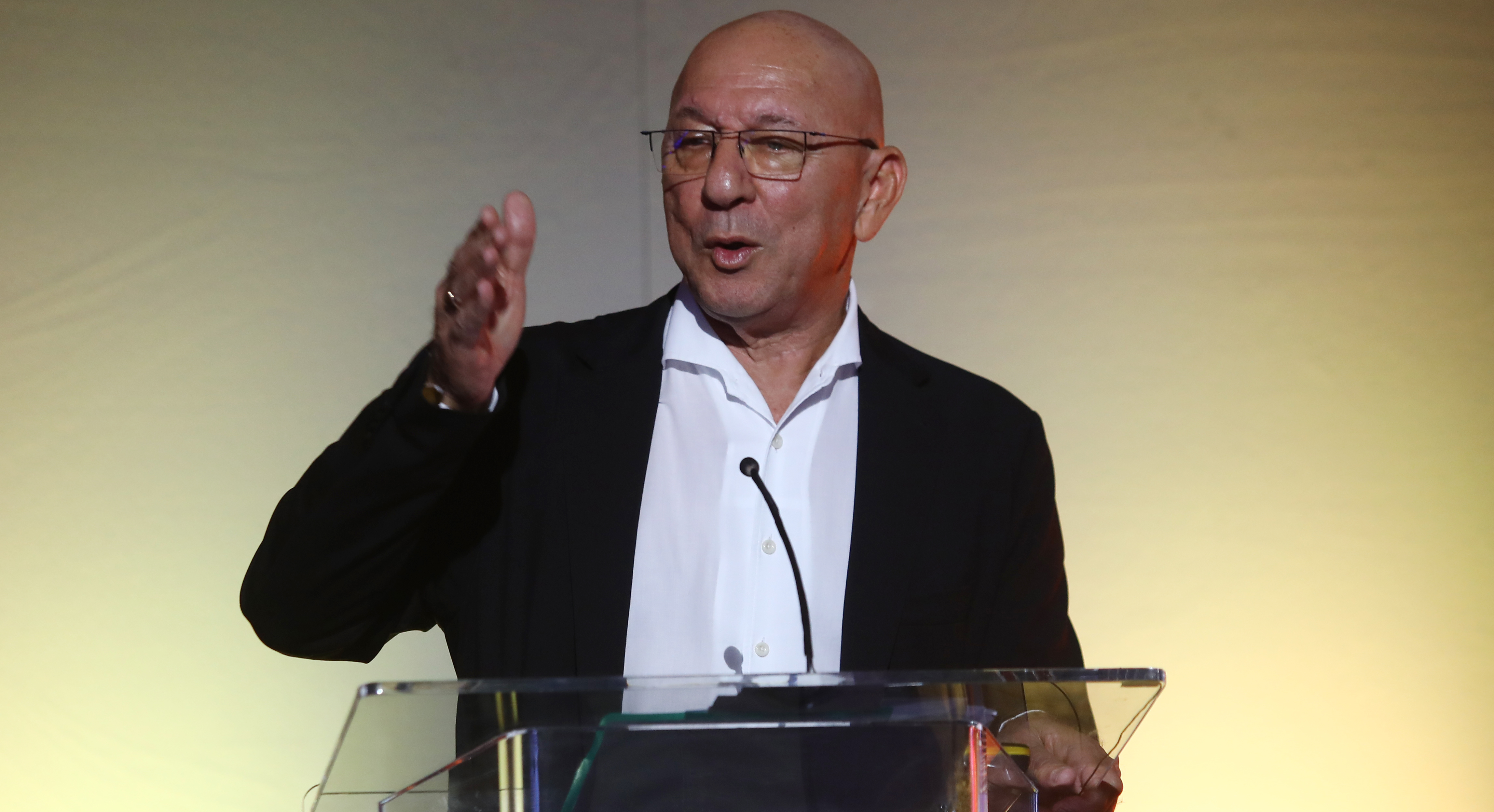Old Mutual says it has managed to increase the minimum salary of employees to R180,000 a year or R15,000 a month, and claims to be the first insurer to do so. “We are among the first companies in the financial services sector to take a decisive step towards narrowing the wage gap and one of the first to provide voluntary disclosure in our remuneration report,” chairman Trevor Manuel writes in the company’s annual integrated report for 2023.
The R15,000 a month minimum salary applies to those employees on a permanent total guaranteed package. To put it in perspective, Standard Bank’s minimum cost-to-company salary in 2023 was R231,050 (R19,254 a month).
 Old Mutual chairman Trevor Manuel delivers his keynote address at the Gathering Twenty Twenty-Four held at the Cape Town International Convention Centre on 14 March, 2024. (Photo: Shelley Christians)
Old Mutual chairman Trevor Manuel delivers his keynote address at the Gathering Twenty Twenty-Four held at the Cape Town International Convention Centre on 14 March, 2024. (Photo: Shelley Christians)
Financial union, Sasbo said Old Mutual has committed to no future new appointments below the R180,000 minimum pay level. The increase reflects an increase on total spend by Old Mutual of 6.8% on the guaranteed remuneration bill for the bargaining unit as of 1 April 2023. Sasbo commended Old Mutual for pay rises between 6.2% and 10% and significantly improved salaries for those previously earning less than the R180,000 annual minimum salary.
Old Mutual’s remuneration committee chairperson, Itumeleng Kgaboesele says the financial services giant adjusted salaries to ensure no employee was below the minimum payline for the category of work carried out. “This change was effective April 2023, having a positive impact on our pay ratios. Approximately 55% of the fair pay spend benefited female employees with just under 90% benefiting previously disadvantaged groups of employees. During the year, we investigated the minimum salaries for the rest of our markets across Africa and found that we pay well above any legislated minimums,” he said. Around 94% of the benefit supported employees in junior roles.
Chief executive Iain Williamson’s annual total guaranteed package is R10.3-million a year. If you weigh that against the minimum salary of R180,000 a year, the pay ratio multiple is 57, which means he earns 57x the minimum company salary.
However, once short-term incentives, long-term incentives and qualifying dividends are accounted for, his annual package works out to R32.33-million for the 2023 financial year — moving the pay ratio multiple to 180.
Just Share notes that Old Mutual uses the approach proposed in the Companies Amendment Bill, which requires companies to disclose “the remuneration gap reflecting the ratio between the total remuneration of the top 5% highest paid employees and the total remuneration of the bottom 5% lowest paid employees of the company”.
“Pay gap disclosures are necessary and important as they provide crucial insights into labour market inequality, and steer informed conversations and a broader understanding of the state of pay disparities and the options available to reduce inequality. This increased transparency also empowers investors to make informed decisions when exercising their voting rights on remuneration policy and implementation reports. It is encouraging to see that several JSE-listed companies have decided voluntarily to make these disclosures,” Just Share says.
However, the non-profit shareholder activism organisation says going forward, such disclosures should include:
- more detail about the roles of the employees to whom the disclosed minimum salaries apply; and
- the number of contract workers to whom these disclosures do not apply, and the types of jobs that they perform. DM




 Trevor Manuel delivers his keynote address at The Gathering Twenty Twenty-Four held at the Cape Town International Convention Centre on 14 March 2024. (Photo: Shelley Christians)
Trevor Manuel delivers his keynote address at The Gathering Twenty Twenty-Four held at the Cape Town International Convention Centre on 14 March 2024. (Photo: Shelley Christians) 